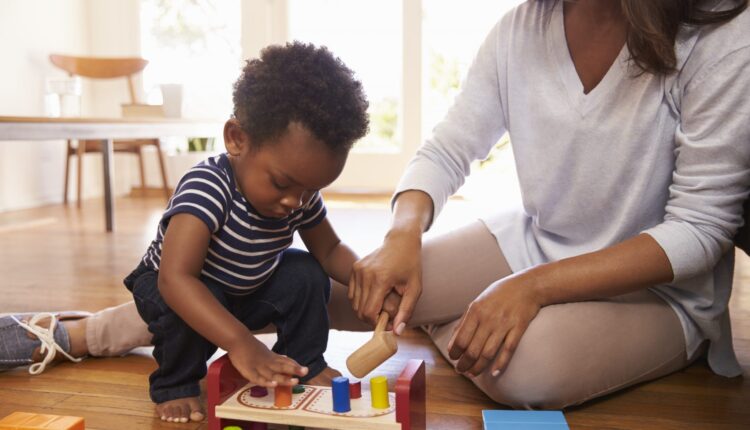Elevate Your Parenting
The theory of emotional intelligence (EQ) was introduced by Peter Salovey and John Mayer in the 1990s, and advanced and brought to the general public through Daniel Goleman’s 1995 book, Emotional Intelligence.
Since then, consistent studies have confirmed the importance and value of these skills, especially when taught during early childhood, although they remain a challenge to conclusively measure.
The good news is that each of the five components of EQ can be role-modeled and taught during your normal play routine: a win-win for you and your kids.
Let’s get the basics down first. Goleman identified five components of emotional intelligence: emotional self-awareness, self-regulation, motivation, empathy, and social skills.
It’s been shown that children with high EQ earn better grades, stay in school longer, and make healthier choices overall. Teachers also report that high-EQ students are more cooperative and make better leaders in the classroom.
What’s more, high emotional intelligence is a greater predictor of career success than a high IQ, which means it’s valued by employers looking for candidates who can complete work and get along with people in increasingly collaborative workplaces.
So, what does EQ skills look like in real life?
The emotionally intelligent child is one who can label his own emotions accurately, regulate them, and control their reactions to them. For example, they can verbalize their anger or disappointment about losing a board game and think of ways to defuse those feelings rather than breaking something.
This is going to become your parenting “special sauce” and it won’t take long to see the results in your household. And don’t worry; there’s a shortcut for you.
I have recently collaborated with the Genius of Play, a non-profit initiative that aims to help parents raise healthy and happy kids through the power of play, on the “Emotional Wellness Playbook,” a free resource for families that provides parents and caregivers with play-based, screen-free activities to help kids ages 3 and up develop emotional intelligence and learn to express their feelings in a healthy way.
Here’s a sneak peek at a couple of activities from the playbook:
In this EQ-elevated version of the classic game, each participant takes turns picking an emoji face from the jar, calling it out to the group, and acting out the emotion associated with that emoji. Players then place a marker on their board corresponding to that emoji.
How will this help your child now? The simple act of labeling or naming emotions as we’re feeling them helps children (and parents) halt the fight-or-flight response that often leads to overwhelm, and instead, activates the higher-level processing part of our brain that helps us calm down and feel a greater sense of control.
How will this help your child in the future? Over time, this practice strengthens children’s capacity to feel big emotions without getting completely overwhelmed by them.
Additionally, your child’s emotional vocabulary will grow over time, so they can rely on verbally expressing their feelings using words rather than defaulting to negative actions to show others how they are feeling.
Self-regulation: DIY Calming Bottle
This is an excellent tool for children that promotes relaxation and stress relief.
How will this help your child now? Making a calming bottle, filled with glitter like a snow globe, provides an opportunity for your child to create a personalized tool that serves as a vehicle to practice deep breathing, an essential coping skill.
Once it’s complete, the calming bottle will serve as their go-to when feeling stressed or anxious. The child shakes up the bottle and practices deep breathing until all the glitter falls to the bottom.
How will this help your child in the future? Deep breathing is directly linked with our body’s nervous system. The practice of deep breathing in response to big emotions has been shown to improve confidence in the face of adversity, improve attention and behavior, reduce depression and anxiety, increase school performance, and enhance sleep.
Play is one of the best ways to teach kids just about anything, and emotional skills are no exception. From learning to cope to building resilience to practicing empathy, it helps little hearts grow bigger and stronger, building the foundation for a healthy adulthood.
What’s more, play is an excellent tool to promote relaxation, encourage positive emotions, and provide moments of joy to offset and relieve life’s everyday stresses. Feel free to check out the Emotional Wellness Playbook for free on thegeniusofplay.org website.



